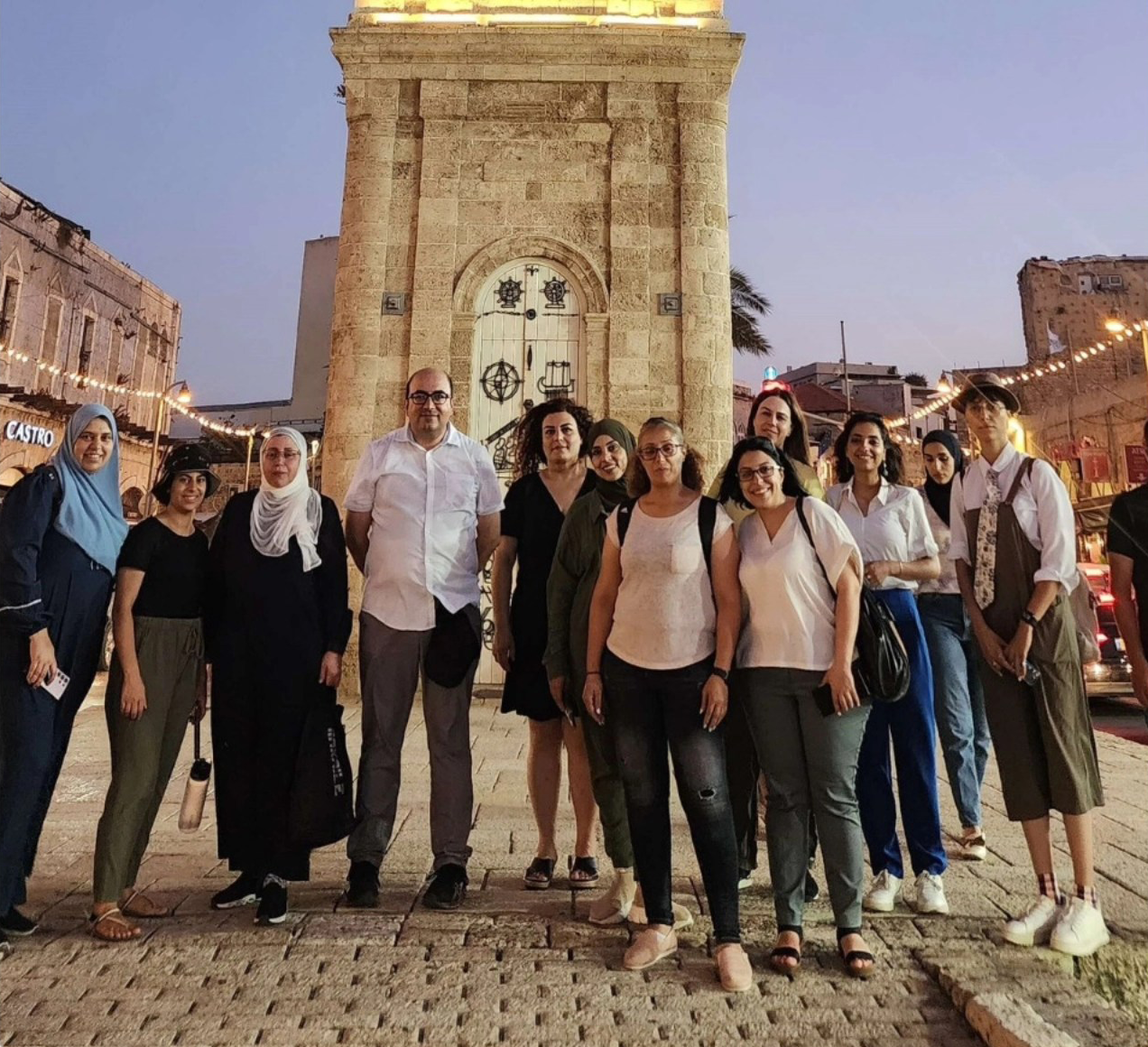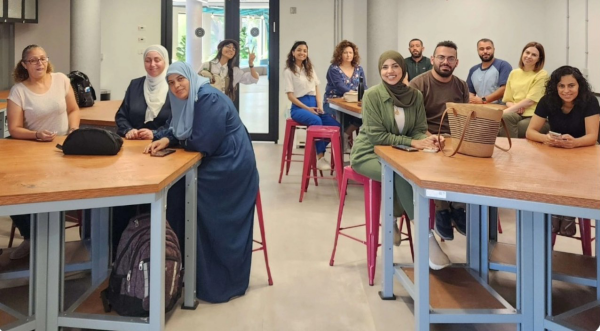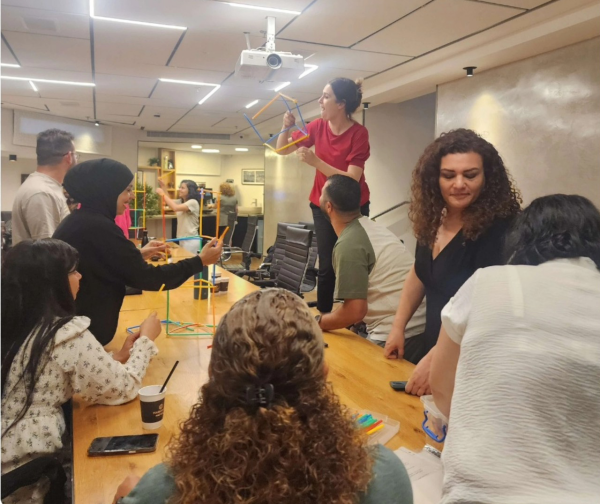
The past year has been an exceptionally difficult one for the Citizens for the Environment team, all members of the Palestinian community in Israel.
“After 7 October 2023 things have become even more difficult for our community,” explains Iman Suleiman, resource development coordinator. "We’re an environmental organisation, not a political one, but we’re still affected by the increasing hostility of the government towards Palestinian CSOs.”
Founded in 1990, Citizens for the Environment has been at the forefront of the fight against pollution and environmental damage in Galilee for decades, advocating for just climate policies, building the capacity of countless local environmental protection committees, and leading a class action against air pollution in Haifa. A few years ago, they started to focus more systematically on how the Palestinian community in Israel is disproportionately affected by environmental damage and climate change.
“Our community lives in very poor, very crowded towns, with no green areas. Urban planning is nonexistent. The infrastructure is not equipped to handle fires, floods, and other natural disasters, and the level of air pollution is very high, due to waste being burned illegally,” says Jameela Hardal Wakim, director of Citizens for the Environment.
“In Nazareth, we have the highest level of asthma among children in the country, due to pollution in Haifa Bay,” echoes Iman. “Studies have also shown that the residues of waste burning cover local olive trees, and eventually are passed on to newborns through breastfeeding. But no one wants to talk about these issues.”
The Palestinian community in Israel is also underrepresented in policy-making bodies, and many governmental plans for environmental issues allocate insufficient funding to Palestinian towns and do not take the needs of the local population into consideration.
“The Palestinian community has historically faced government policies and practices that have left it very fragmented, making it challenging to build strong bonds.” says project manager Juhaina Bader Namarneh. "We see it as our responsibility as community leaders to create these bonds so that we can all work together towards our goals.”

For these reasons, Citizens for the Environment is training activists from the Palestinian community in Israel to push for policy change and to take a seat in decision-making circles. The initiative carried out recently with EED’s funding saw the selection of a group of 20 young Palestinian activists - most of them women, many working in the environment field or local administration - to take part in a series of workshops and collaborative projects to create a more coordinated approach to environmental challenges and long-term advocacy.
The project continued even after the escalation of the war in Gaza. “Community partnerships and grassroots activism were the basis of this initiative, and as a result, we developed a strong bond with the activists that made them continue. They want to make a change, so even in these difficult times they managed to find the energy to continue,” says Juhaina. “Even more, they came to see this group as a source of comfort, where they can trust each other and support one another.” She had to use her experience as a social worker to ease the psychological burden and hold the group together.
After the programme, six of the graduates were named public representatives for local environmental committees. “When it comes to climate issues, most of the responsibilities lie with local administrations,” explains Jameela. “This is why it’s very important for our people to volunteer there, to promote partnerships between communities and local authorities.”
In this very complicated context, activism takes time to see results, which is why Citizens for the Environment focuses on achieving slow but steady change in the long term. They are in touch with local Palestinian media to increase the coverage of environmental issues and raise awareness among the general population, but a lot of the time what is lacking is the ability to influence policies.
“Things are changing: we recently had a field trip to assess the environmental condition of a specific area, and we were positively shocked when the local mayor joined us. It reflected the growing awareness of these issues in the community,” says Jameela. “Also, some graduates of our programmes have become mayors or elected officials and have established their local environmental committees. It takes several years, but we can see the impact of our work growing.”

The war in Gaza and Lebanon as well as the escalation of violence in the West Bank and Israel has made it harder for the Citizens for the Environment team to plan for the future, as they have had to work from home for more than a month, with continuous bomb alarms. They were forced to postpone indefinitely a planned conference that would have brought together Palestinian experts and activists to discuss pressing environmental problems. At the same time, they are still planning to begin new projects before the end of the year.
“We have positioned ourselves as the leading voice for environmental protection in the Palestinian community, and we’re doing this successfully and confidently despite the challenges of the war. We have become an important voice for the community, and we can continue to do a lot with their support,” says Iman.
“At this point, even if it’s hard to gather the energy for new projects, we have no other option: we have to continue to try and make things happen. This is our specialty, this is what we know how to do,” concludes Jameela.
This article reflects the views of the grantees featured and does not necessarily represent the official opinion of the EED.